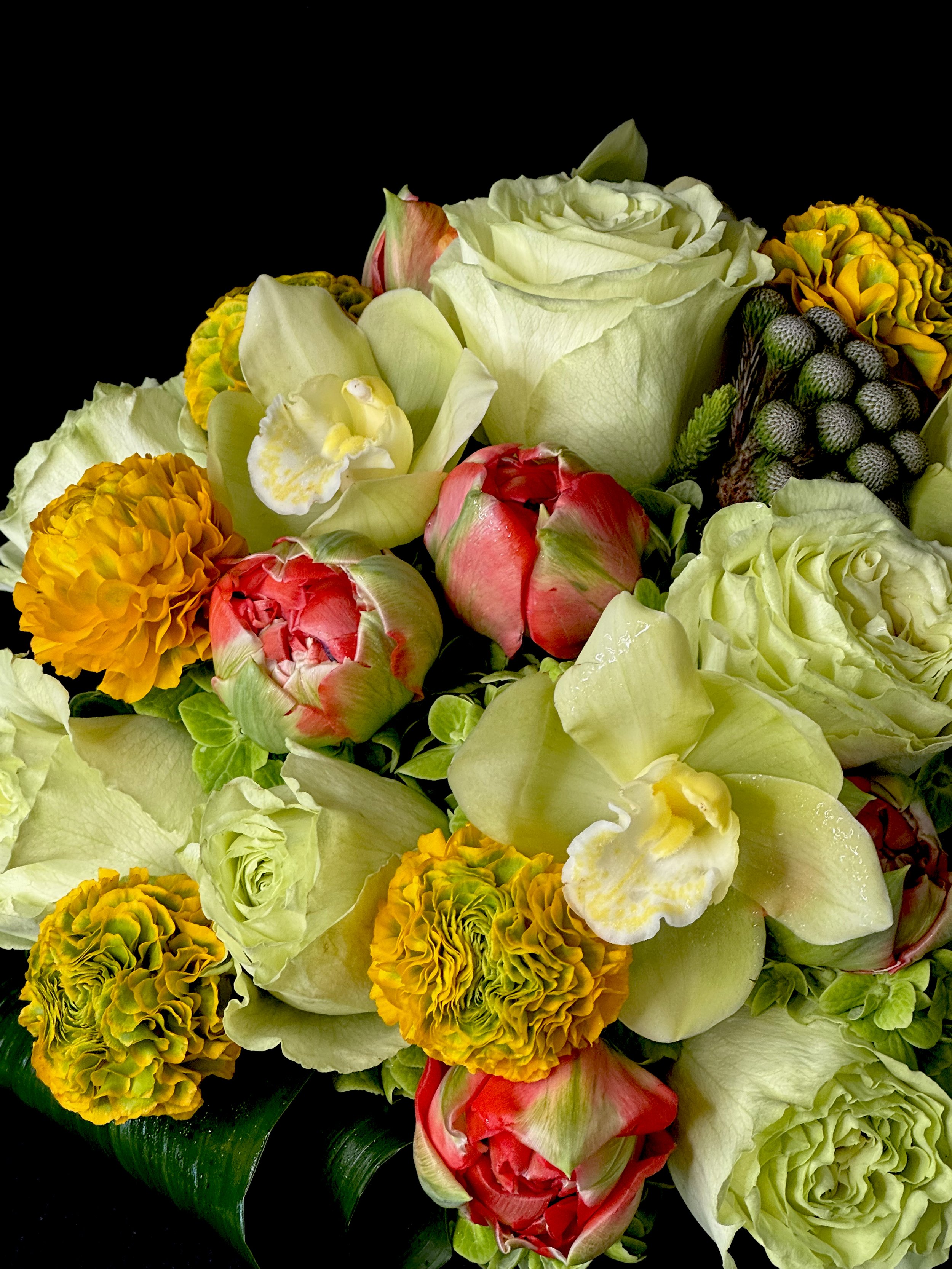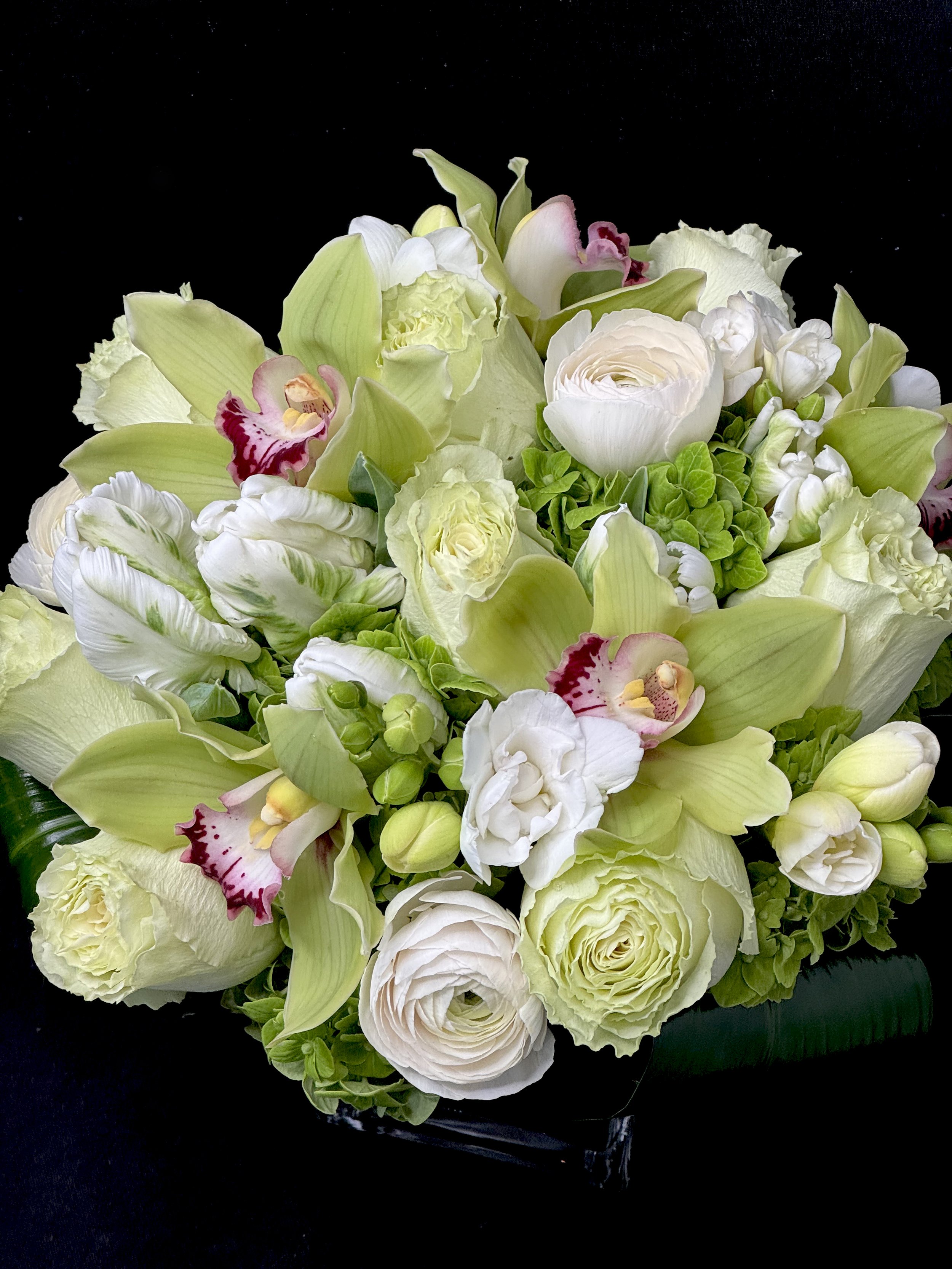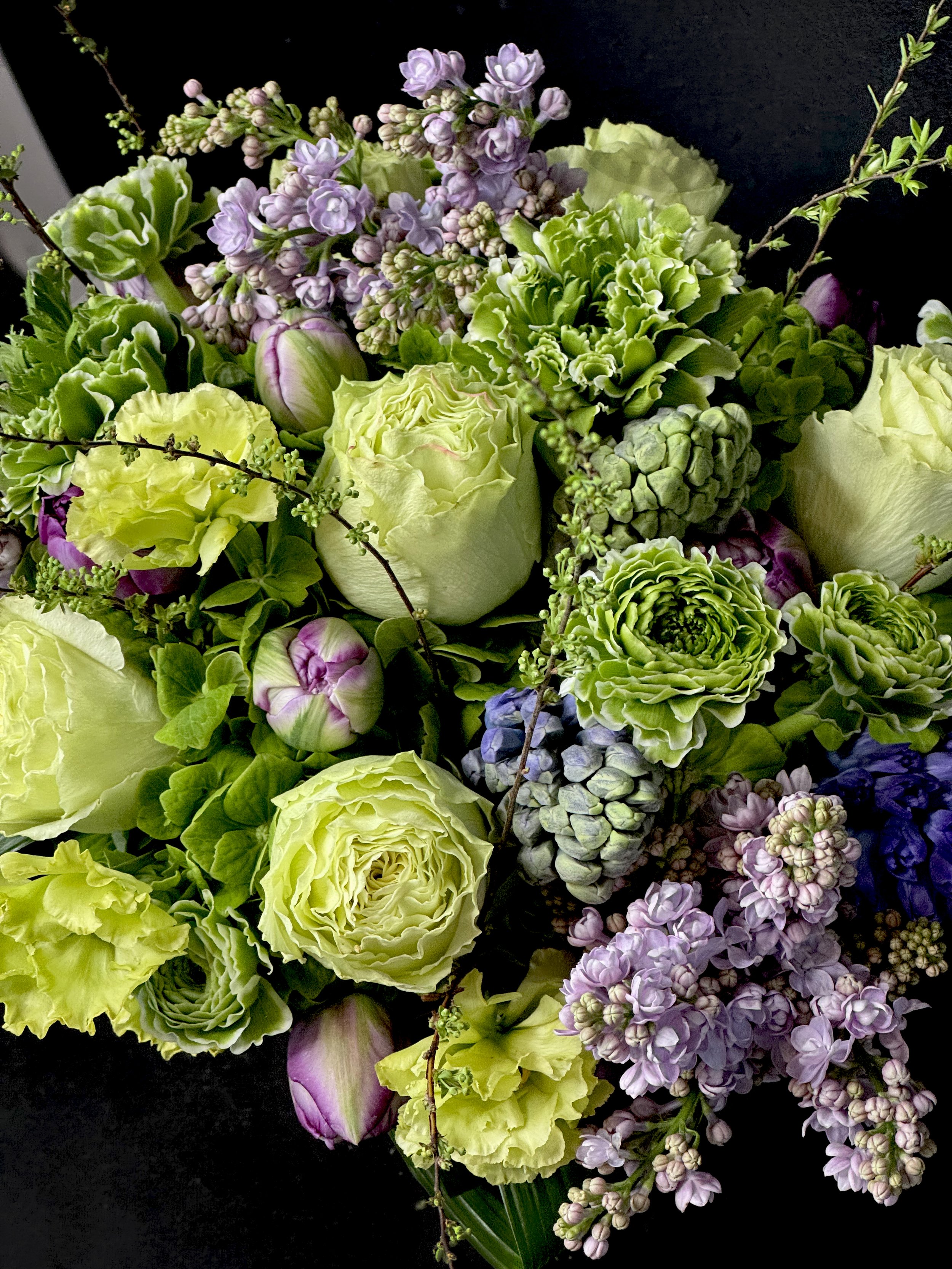The Meaning Behind Popular Flower Colors: What Your Bouquet Is Really Saying
Ever picked up a bouquet and wondered if those colors are saying something you don’t even realize? Trust me, you’re not alone! Flower colors are way more than just eye candy—they actually carry powerful messages that can totally change the vibe of your gift. Whether you’re sending roses to your sweetheart, tulips to your mom, or sunflowers to your best friend, those hues are speaking volumes, even if you didn’t mean for them to. Let’s take a colorful journey into the meaning behind popular flower colors and discover what your bouquet is really saying.
Why Flower Colors Matter
The Psychology of Color
Have you ever noticed how certain colors just make you feel something? That’s no accident—color psychology is a real thing! Colors can instantly trigger emotions, memories, and even physiological reactions. When it comes to flowers, the shades you choose can inspire love, comfort, joy, or even sympathy. It’s like a secret language, and once you know it, you’ll never see a bouquet the same way again.
Red: Passion, excitement, desire
Pink: Sweetness, affection, joy
White: Purity, calm, new beginnings
Yellow: Cheerfulness, friendship, hope
Orange: Enthusiasm, energy, celebration
Purple: Luxury, mystery, creativity
Blue: Peace, trust, stability
Green: Renewal, health, balance
History and Tradition of Flower Symbolism
Flower color meanings didn’t just appear out of thin air. Throughout history, from ancient Egypt to Victorian England, people have assigned special meanings to different colors and blooms. The Victorians even had entire flower dictionaries to decode secret love messages! Today, while the symbolism might not be as strict, it still influences the way we give and receive flowers for all kinds of occasions—weddings, birthdays, funerals, you name it.
Red Flowers: The Language of Love and Passion
When you think “romance,” red flowers—especially roses—are probably the first thing that pop into your mind. And for good reason! Red is the universal color of deep love, desire, and passion. If you want to make someone’s heart race, go for a bouquet bursting with red.
When to Give Red Flowers
Valentine’s Day: Classic move for lovers.
Anniversaries: Rekindle the spark.
Proposals: Nothing says “I love you” like red roses.
Apologies: When words aren’t enough, red blooms say “I’m truly sorry.”
But don’t reserve reds just for romance! They’re also a bold way to show respect, admiration, or deep gratitude.
Best Red Blooms and Their Unique Meanings
Red Roses: True love, passion
Red Tulips: Declaration of love
Red Carnations: Admiration, affection
Red Gerbera Daisies: Courage, admiration
Red Poppies: Remembrance
Pink Flowers: Affection, Grace, and Sweetness
Pink flowers are all about warmth and kindness. They send a softer message than red—think “I care about you,” not “I’m obsessed with you.” Pink is perfect for new relationships, close friends, or anytime you want to express gentle affection.
Pink for Friendships and Romance
Mother’s Day: Pink bouquets for the mom in your life = chef’s kiss.
Birthdays: Great for sisters, friends, or anyone who lights up your world.
Baby Showers: Symbolizes new life and nurturing.
Popular Pink Flower Varieties
Pink Roses: Gratitude, admiration
Pink Peonies: Good fortune, happy marriage
Pink Lilies: Prosperity, abundance
Pink Tulips: Happiness, confidence
Pink Camellias: Longing, admiration
Pink flowers are all about love and joy without any drama attached.
White Flowers: Purity, Innocence, and New Beginnings
White flowers might look simple, but their meaning runs deep. They symbolize purity, innocence, and the start of something new. That’s why you see so many white blooms at weddings, christenings, and, yes, even at funerals.
Weddings, Sympathy, and White Bouquets
Weddings: White is the ultimate “fresh start” color.
Sympathy: White bouquets offer peace and comfort.
Graduations and milestones: They celebrate fresh beginnings.
Iconic White Flowers and Their Stories
White Roses: Innocence, reverence
White Lilies: Sympathy, rebirth
White Orchids: Elegance, humility
White Tulips: Forgiveness, purity
Baby’s Breath: Everlasting love
Whether you want to say “congrats,” “I’m sorry,” or “I believe in you,” white flowers always hit the mark.
Yellow Flowers: Happiness, Friendship, and Positivity
Yellow flowers are pure sunshine. Seriously—if joy had a color, it would be yellow! They’re perfect for cheering someone up, celebrating a new friendship, or just brightening a gloomy day.
When to Gift Yellow Flowers
Get Well Soon: A burst of yellow can lift anyone’s spirits.
Graduations and promotions: Celebrate achievements with golden blooms.
Thank You: Show appreciation and positivity.
Notable Yellow Blooms and Their Hidden Messages
Yellow Roses: Friendship, joy
Sunflowers: Adoration, loyalty
Yellow Daffodils: New beginnings, hope
Yellow Tulips: Cheerfulness, sunshine
Yellow Lilies: Gratitude, happiness
A yellow bouquet says, “You make life brighter.”
Orange Flowers: Enthusiasm, Energy, and Joy
Orange flowers are the life of the party—seriously, these are the blooms that bring energy, excitement, and warmth to any bouquet. If you want to send a message that’s bold, positive, and full of life, orange flowers are your best friend. They’re not just for fall either; orange can work all year round, especially when you want to turn up the fun.
Orange for Celebrations
Congratulations: Whether it’s a new job, a big win, or a life milestone, orange flowers shout “Way to go!”
Housewarmings: They bring warmth and a sense of welcoming to any space.
Thanksgiving and autumn events: Orange blooms mix perfectly with reds and yellows for seasonal arrangements.
Standout Orange Flower Types
Orange Lilies: Passion, confidence, and honor
Marigolds: Positive energy, creativity, and good fortune
Orange Tulips: Fascination and enthusiasm
Bird of Paradise: Joy and magnificence
Gerbera Daisies: Cheerfulness and vibrant energy
A splash of orange says, “Let’s celebrate life’s moments with gusto!”
Purple Flowers: Royalty, Mystery, and Imagination
Purple is the color of royalty, luxury, and intrigue. For centuries, purple dye was rare and expensive, making it the signature hue for kings, queens, and creative types. When you give purple flowers, you’re sending a message of admiration, respect, and a touch of mystery.
Spiritual and Creative Symbolism
Graduations and achievements: Purple marks the pursuit of wisdom and accomplishment.
Thank you gifts: Show deep appreciation and honor.
Creative inspiration: Purple sparks imagination—great for artists or dreamers.
Favorite Purple Flowers and Their Meanings
Lavender: Calmness, grace, and tranquility
Purple Irises: Wisdom, hope, and respect
Purple Orchids: Admiration and dignity
Violets: Loyalty and devotion
Allium: Unity and patience
Purple bouquets say, “You’re special, unique, and unforgettable.”
Blue Flowers: Tranquility, Trust, and Peace
Blue flowers aren’t super common, which makes them extra special when you find them. Blue instantly relaxes the mind—it’s like a deep breath or a clear sky on a spring day. These blooms are perfect when you want to send vibes of calm, trust, and emotional depth.
Calming Effects of Blue Blooms
Sympathy arrangements: Offer comfort and peace in tough times.
Apologies: Blue can help heal and restore trust.
Friendship and support: Show someone you’re there for them, rain or shine.
Rare Blue Flowers and Their Special Significance
Blue Hydrangea: Gratitude, understanding, and harmony
Blue Delphinium: Dignity and encouragement
Bluebells: Humility and everlasting love
Blue Anemone: Anticipation and protection
Bachelor’s Buttons (Cornflowers): Hope and devotion
A blue bouquet whispers, “I wish you peace and harmony.”
Green Flowers: Renewal, Health, and Harmony
Green is all about nature, new beginnings, and a sense of balance. Green flowers and foliage don’t always get the spotlight, but they bring freshness and renewal wherever they go. If you want to send a modern, earthy message—or just brighten a space with something unique—go green!
Modern Green Flower Arrangements
Wellness gifts: Send green flowers to wish someone health and healing.
Home decor: Green is trendy and pairs well with any interior.
Graduations or new jobs: Celebrate fresh starts and growth.
Popular Green Blooms and Foliage
Green Chrysanthemums: Long life and rebirth
Bells of Ireland: Good luck and prosperity
Green Roses: Abundance and stability
Hellebores: Peace and tranquility
Succulent blooms: Endurance and tenacity
A green bouquet says, “Here’s to growth, luck, and good health!”
Mixed Bouquets: Combining Colors for Deeper Meaning
Sometimes, a single color just isn’t enough to capture what you want to say. That’s where mixed bouquets come in! By combining colors, you can craft a truly personalized message—one that reflects layers of meaning and emotion.
How Color Pairings Change the Message
Red + White: Unity, togetherness, and everlasting love
Yellow + Orange: Pure joy, energy, and friendship
Pink + Purple: Sweet admiration, creativity, and charm
Blue + White: Peace, hope, and new beginnings
Green + Any color: Adds renewal and freshness to the meaning
Examples of Meaningful Mixed Arrangements
Romantic mix: Red roses and pink peonies for passion and tenderness
Celebration bouquet: Yellow lilies and orange gerberas for success and happiness
Sympathy bouquet: Blue hydrangeas with white lilies for peace and comfort
Friendship bouquet: Sunflowers, green mums, and yellow roses for support and positivity
Flower Color Myths and Misconceptions
Debunking Popular Flower Color Myths
Not everything you’ve heard about flower color meanings is true! Over time, traditions, culture, and even pop culture have warped the original symbolism of certain blooms. For instance, you may have heard that yellow roses always mean infidelity or jealousy—spoiler alert: that’s not true in most modern contexts! Today, yellow roses are much more commonly associated with friendship and joy than anything negative.
Here are some other common myths:
White flowers are only for funerals: While white blooms are popular for sympathy arrangements, they’re also symbols of purity and new beginnings. Think weddings, baby showers, and graduations.
Red roses always mean romantic love: Red roses do symbolize romance, but they can also represent deep respect or admiration for a close friend or mentor.
Blue flowers are sad: Blue can represent calmness and trust, not just sadness. In fact, blue flowers are often chosen for their peaceful and soothing vibes.
How Modern Trends Are Shifting Traditions
Today’s floral trends are a mix of classic meanings and bold new interpretations. People are more willing than ever to mix colors, try unusual shades, and send flowers just because they look cool—not only for their symbolism. Social media has played a big part in this shift, making “aesthetic” arrangements more popular than strictly traditional ones.
What does this mean for you? Don’t stress too much about getting the symbolism exactly right. Focus on the feelings you want to inspire and the story you want to tell with your bouquet. At the end of the day, if a color or flower brings a smile, it’s the right choice!
How to Choose the Right Flower Colors for Any Occasion
Tips for Gift-Giving
Selecting the perfect bouquet isn’t just about picking pretty colors—it’s about matching the message to the moment. Here are some tips to help you nail it every time:
Consider the occasion: Romantic holidays? Go with reds and pinks. Celebrations? Bright yellows and oranges. Sympathy or apologies? Blues and whites are best.
Think about the recipient: Do they have a favorite color or flower? That’s always a safe bet.
Mix for meaning: Combine colors to create a deeper, more personal message. For example, mix purple for admiration with pink for joy to show both your respect and affection.
Go seasonal: Spring bouquets look best with pastels, while autumn bouquets are perfect for bold oranges, reds, and yellows.
Add greenery: Greens add balance, calm, and a touch of the outdoors to any arrangement.
What to Avoid and Cultural Sensitivities
Flower meanings can change from one culture to another, so it’s worth doing a quick check before sending your bouquet—especially for major life events. Here are a few things to keep in mind:
In some cultures, white flowers are strictly for funerals. Avoid all-white bouquets unless you know it’s appropriate.
Red flowers may symbolize luck and celebration in some Asian countries, while in others, they could have romantic implications.
Chrysanthemums are often used for funerals in Europe and parts of Asia, so double-check before sending them for happy occasions.
Odd numbers of flowers are considered good luck in some cultures but bad luck in others.
If you’re unsure, ask your florist—they’re usually happy to help you navigate cultural nuances.
Conclusion
Every bouquet tells a story, and color is its most powerful storyteller. Whether you’re celebrating love, friendship, success, or new beginnings, the shades you choose can make your message truly unforgettable. From the fiery passion of red roses to the peaceful vibes of blue hydrangeas, and the joyful energy of yellow sunflowers, flower colors give you the chance to say exactly what you feel—without ever saying a word.
The next time you pick up a bouquet, remember: you’re not just choosing flowers. You’re crafting an experience, sparking memories, and sending a heartfelt message that’s as unique as the person receiving it. Don’t be afraid to get creative and let your own personality shine through every bloom.



